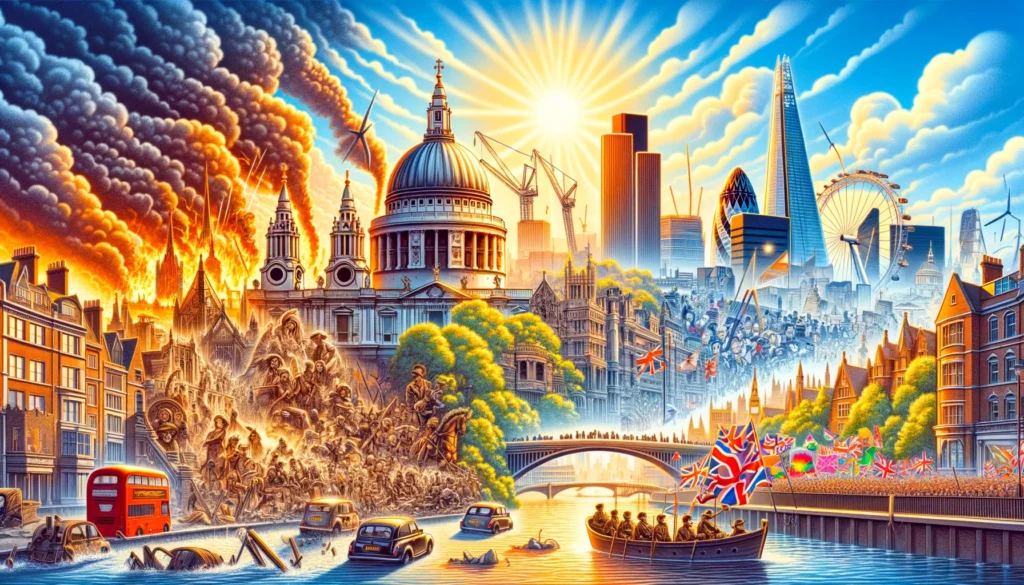
.
.
The Great Fire tried it in 1666, the Germans in the Blitz of 1940/41, and the right-wingers and Brexit fanatics have been trying it ever since 2016.
But London is unkaputtable.
If there was ever a meaning of resilience it encapsulates the essence of that town, an agglomeration of villages along a river bound by sheer spirit.
They were insulting and attacking the Poles that had fixed their bathrooms for oh-so-many years as if they could defeat them and, with them, the atman of London. Many suffered and were in disbelief.
Just four years before the referendum, London had hosted the Olympic Games like no other city did before or after. It was a celebration of volunteering and coming together with much loved soldiers helping out with security and sold out stadiums, also for the Paralympics that followed a month later.
Never had this happened prior to London.
London doesn’t care whether you have lost a limb. And it doesn’t care about the colour of your skin or your use of articles. And it doesn’t even care where your money is from. London is an unbreakable machine.
It has its dark sides of course, from Jack the Ripper in the late 19th century to the rippers of that square-mile district that prides itself to be called the “city” who got away with their digressions just as Jack did.
London forgives. London invites. It invites the rich and the poor and by doing so it always poses a challenge. It is not easy to live in London. But those who accept the challenge do get a reward, They may live in the smallest quarters paying absurd amounts of rent. But, in return, they get to live among others with similar grit.
And it is that grit of the many that makes the grit of the town.
There are several other cities affording similar amenities as London does – opera, cinema, clubs and museums – and some, like the German capital city of Berlin, do so without pushing their inhabitants to their budget constraints.
“If you go to Berlin, you will stop thinking about money”, a close friend of mine advised me when, after having spent more than a dozen years at two London universities, I had received an offer from a Berlin research institute. I took the offer and found that my friend was right. Taking away the insane pressure of the London housing market did make me forget about my income. And what a relief it was.
These days, however, as the right-wing populists gain ground north, east, west and south of Berlin, I begin to worry about grit. In the 1920s Berlin was, without doubt, even exceeding London in its liberal values. But it all went fairly easily down the drain. Berlin had no grit. Had it had it, the 20th century might have unfolded differently.
Instead, we got World War 2 and the Holocaust.
If it is easy to adjust your life to bad shocks and if you get used to the idea, you find your comfy ways out. London doesn’t afford this. It never did, It was always unforgiving.
And it is that unforgivingness that does not only make London thrive in the face of god-knows-what adversities, it is what makes a true Londoner. Adaptable, taking no bullshit, bold and brash, and understanding that being a Londoner has nothing to do with personal heritage but only, only with the heritage of that indefatigable town.
Steffen Huck
Emeritus Professor of Economics at UCL in London and Research Professor Human Agency and Behavioral Economics at the WZB in Berlin.